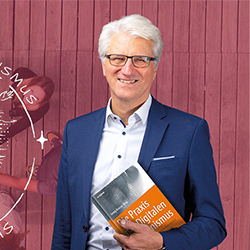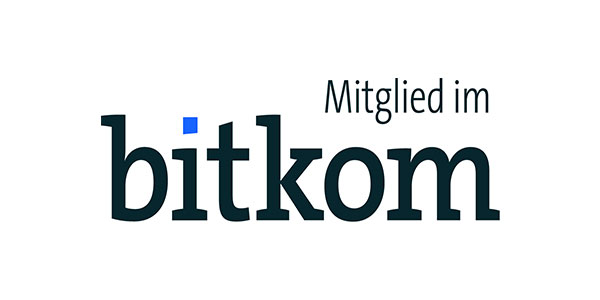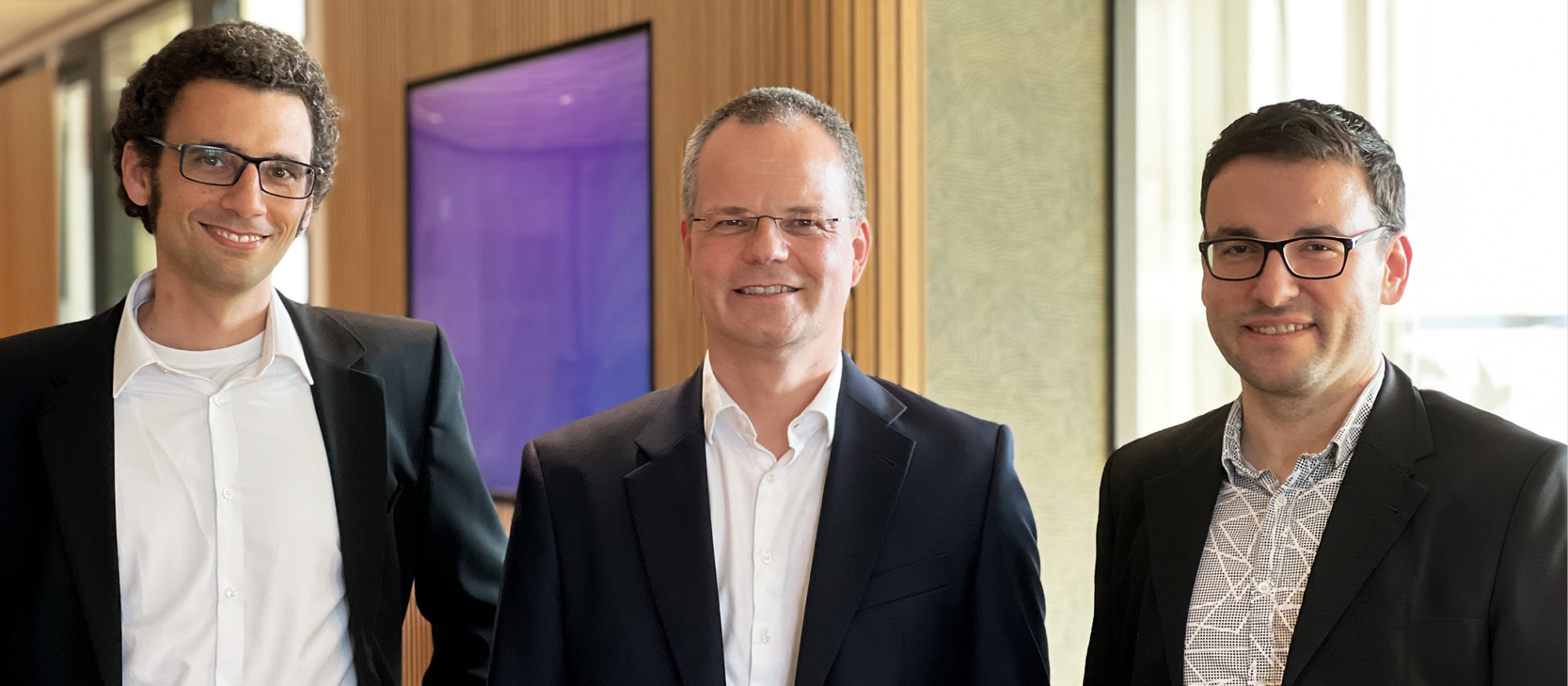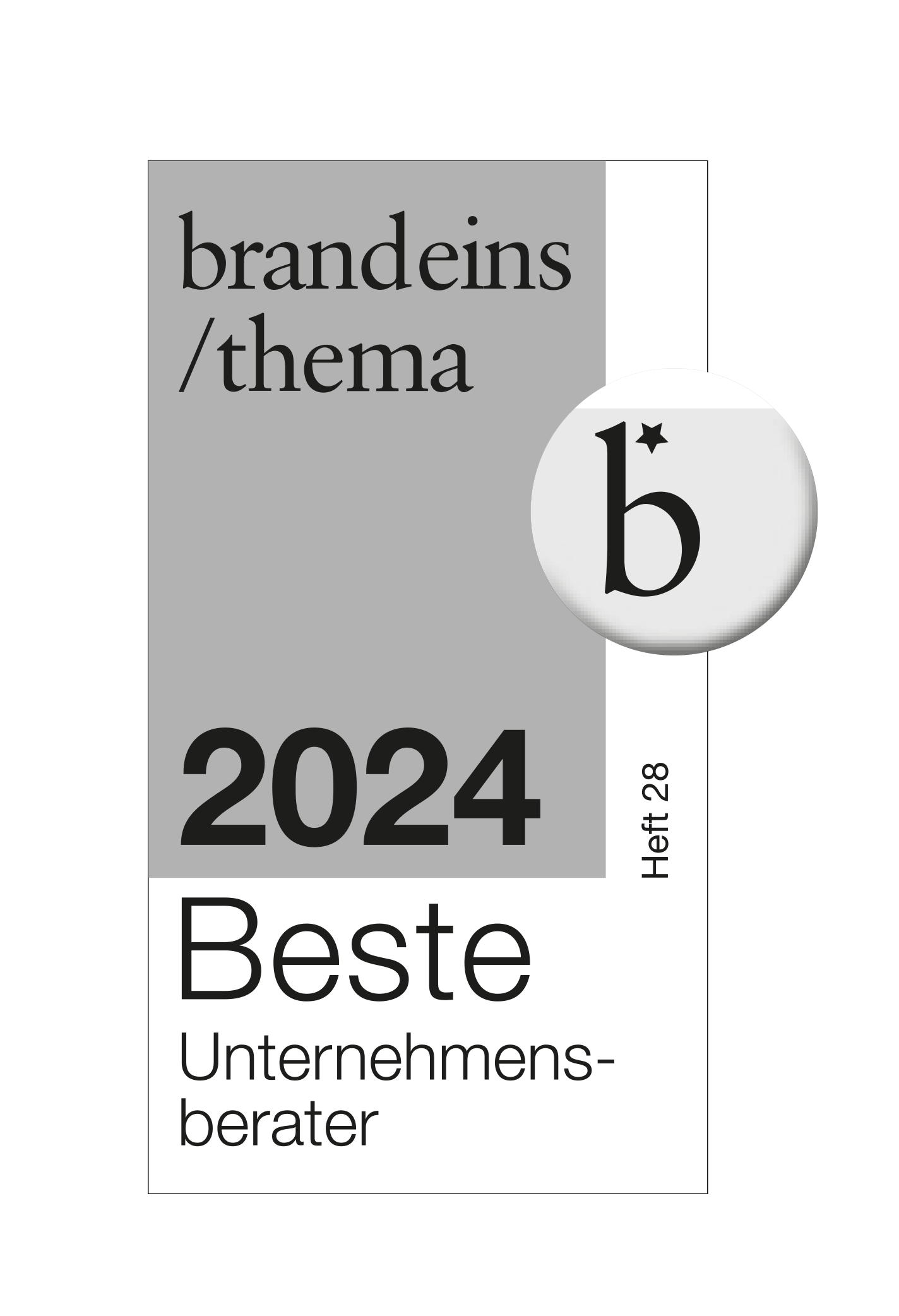As an owner-managed, German company with clear values, msg has been working for many years on the question of how technology and humanity can go hand in hand. Putting people at the center of technological progress – this is what msg is committed to, which that is also reflected in msg's claim: value – inspired by people
5 questions to msg’s CEO, Dr. Jürgen Zehetmaier
How do you define the term digital humanism?
Digital humanism is about putting people at the center of technological developments. Technology serves people – not the other way round.
In your opinion, what special responsibility do IT companies have when it comes to digital humanism?
Digital humanism is about adapting technological progress to the needs of people. As an IT company, it is important to keep the real focus because technological progress is not a means in itself. Rather, we should always ask ourselves the question: What are we actually doing all this for? And in my view, the answer should be for everything: To make people's lives easier or better.
How does msg deal with this responsibility?
msg has been successful on the market for 43 years and operates sustainably, which is why we also feel a social responsibility here. Our customers value us for our in-depth industry expertise in insurance, automotive, banking, the public sector and other industries. And because we understand our customers very well in technical terms and understand the topics in depth, we can optimally assess which technical solution fits which technical problem. We are not interested in showing what we can do on the technology side. Our aim is to offer our customers what makes sense for them and what in turn makes their customers' lives easier. And to be honest, it has to be said that only a fraction of the things that are technologically feasible actually make sense for people in the long term.
In your opinion, should there be stronger regulations or a clear legal framework for IT companies?
AI is certainly the most important technological development at the moment, which raises many ethical questions in society. What is AI allowed to do? Will AI soon dominate humans? Who serves whom here? The European Union is currently the global pioneer in the regulation of AI. It has been working on a corresponding legislative proposal, the Artificial Intelligence Act (AIA), for some time. This proved difficult in part because technological development is rapid and sometimes simply overtook the discussion processes. However, the AI Act has now been adopted by the European Parliament. The law is due to come into force by the end of the year. Companies will then have two years to adapt to the changed framework conditions. It remains to be seen how the Federal Government will deal with the AI Act for Germany. In any case, it is extremely pleasing to see that European policymakers are responding to the need for regulation with a risk-based approach that aims to balance both the broad protection needs of individuals and innovations that are beneficial to society.
Regulation and ethical aspects are not a priority in some other regions of the world, which is why the possibilities for the further development and use of AI are almost limitless there today. However, European companies should not see regulation as an insurmountable obstacle to technological progress. Rather, the demand for ethically responsible AI solutions will increase, which could give us in Europe an enormous advantage in the long term.
msg has made a number of strategic investments in AI and with Aleph Alpha a strong partner at its side. To what extent does digital humanism play a role here too?
Digital humanism is crucial for us, especially when it comes to AI. Artificial intelligence does not make people's lives better per se. Especially when it is used for surveillance purposes, to develop algorithms that are addictive or to spread fake news.
We are a partner of Aleph Alpha, because "Reliable AI" and "AI made in Europe" are also important cornerstones of our own AI strategy. Through the multimodal AI model Luminous, which significantly supports comprehensible AI in speech and image processing based on European training data, Aleph Alpha creates the basis for sovereign European and German AI solutions. These make people's lives easier and fulfill the upcoming EU requirements in the AI Act.
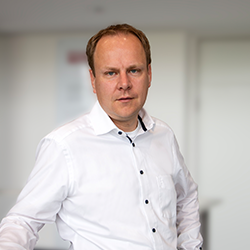
In focus
The practice of digital humanism: What companies contribute and how they can benefit from it.
(Only available in German)
The editor of the book Dr. Georg Krause, CEO of msg Plaut, asked political decision-makers, CEOs of leading companies and renowned professors to share their views, goals and practical examples of digital humanism.
